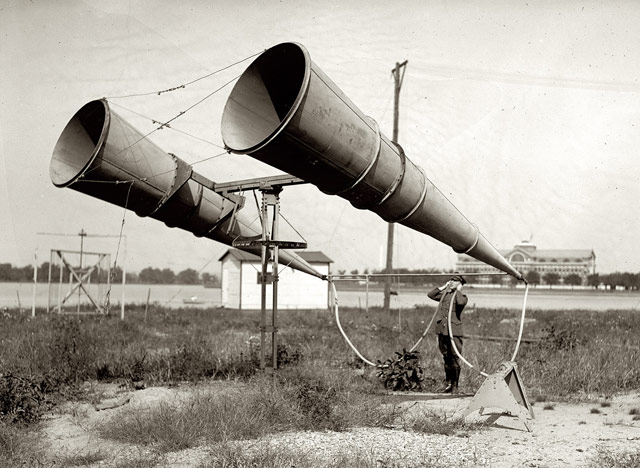How does the snow-diving fox hunt?
First of all, how cute are these foxes jumping up and diving down into the snow after mice?
So. Cute. Here’s Robert Krulwich on what they’re up to:
Think about this … an ordinary fox can stalk a mole, mouse, vole or shrew from a distance of 25 feet, which means its food is making a barely audible rustling sound, hiding almost two car lengths away. And yet our fox hurls itself into the air — in an arc determined by the fox, the speed and trajectory of the scurrying mouse, any breezes, the thickness of the ground cover, the depth of the snow — and somehow (how? how?), it can land straight on top of the mouse, pinning it with its forepaws or grabbing the mouse’s head with its teeth.
Look at those ears and how the fox moves his head around to zero in on the mouse’s location…reminds me of the pre-radar acoustic location devices (sometimes called war tubas) used in the early 20th century to detect approaching aircraft:

Let slip the tubas of war! Aaaaanyway, as the acoustic location device gave way to the more effective radar, so too is the fox more successful at hunting when he is pointed northeast — a kind of magnetic radar, if you will. Fascinating.





Stay Connected